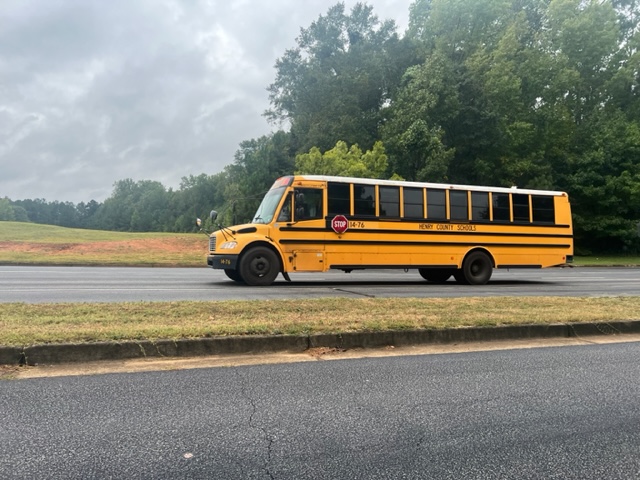Stay ahead of the curve as a political insider with deep policy analysis, daily briefings and policy-shaping tools.
Request a Demo
Students in elementary classroom. (Credit: Governor's Office of Student Achievement)
- Program for thousands of struggling students caves in three years.
- Tension built between program leader and state schools chief.
- Audit targets consultant fees and spotty oversight.
For many local advocates and educators, the fate of the Chief Turnaround Office is a cautionary tale on the pitfalls of injecting politics and quick-fix solutions into the hands-on work that comes with helping Georgia’s neediest students.
This upcoming school year, state officials are set to distribute nearly $24 million in federal grants to around 230 schools statewide for improvement purposes such as teacher training, outside specialists, data tools, after-school programs and books. Many of those schools have stayed among the state’s lowest test scores and graduation rates for years.
Since the turnaround office’s closing, some of its former staff have taken jobs at local schools and districts. Others have become consultants or are retired. Only a few have remained at the state education agency to continue working with local districts and regional groups to give struggling schools a boost.
“No matter who does it, to me the work of school improvement is work that every school should do,” said Alexander, the former turnaround specialist team’s leader. “It’s difficult work.”
With the COVID-19 pandemic disrupting classroom teaching and test scores for more than a year, state and local school officials could use all the help they can get to ensure students at already low-performing schools do not fall through the cracks.
As Clayton County Public Schools’ superintendent, Morcease Beasley oversees three schools stuck on the state’s low-performing list for the last few years. The lack of standardized test scores during the pandemic has made it difficult to track those schools’ progress, he said. But Beasley’s schools still face significant challenges, even if they earn good enough scores to remove them from the state’s list. Just a fraction of students in his district received pre-kindergarten instruction, leaving them a step behind other parts of the state in reading and math proficiency, he said.
No matter what the state or a special legislature-created office may do, Beasley and other educators agree the burden is on local school administrators themselves to help their students turn a corner for the better.
“At the end of the day, we’re more interested in ensuring that all our students are getting what they need to be successful,” Beasley said. “Whether you’re on a state list or not, we’ve got to do it in order to get where we want to go.”
NOTE: This story has been updated to clarify the timing of Eric Thomas’ resignation, the jurisdiction of the internal audit, scope of a lawsuit from a former staff specialist and Thomas’ formal response to his management of travel reimbursements.
What else would you like to know about Georgia’s public schools? Share your thoughts/tips by emailing [email protected].
Header image credit: Governor’s Office of Student Achievement
Weekend Read: New school buses arrive spring ’25; schools grapple with bus driver shortages
The Gist Georgia has ordered 256 new school buses to relieve the aging fleets in public schools around the state, but most of those new buses won’t be on the road until the end of this school year. What’s Happening “We’ll be looking at springtime before those buses start rolling,” said Ken Johnson, pupil transportation …
Mega Millions has generated over $17M in HOPE, pre-K funding since June
By now you’re acutely aware you’re not holding the winning ticket to this week’s $810 million Mega Millions Jackpot. That honor goes to a Texan who matched all six numbers. Take solace, though, knowing your weekly spending on lottery tickets in Georgia helps preschoolers get an early educational start and pays students’ way through college …
Presidential race aside, what’s at stake for Georgians in the November election?
The Gist Despite all 236 members of the state House and Senate up for reelection in November, the presidential race has taken center stage in Georgia with the nomination of Vice President Kamala Harris for U.S. president. Nonetheless, Georgia Democrats will be in a push-and-pull contest to gain more seats in both the House and …
Election administrators ‘in limbo’ over new voting rules, top official says
If you plan to hand-deliver your absentee ballot to your local election office this year, you’ll have to show identification and sign a form stating whose ballot you’re dropping off, under a new rule recently passed by the State Election Board. If you fail to show your ID or don’t complete the form, your ballot …




